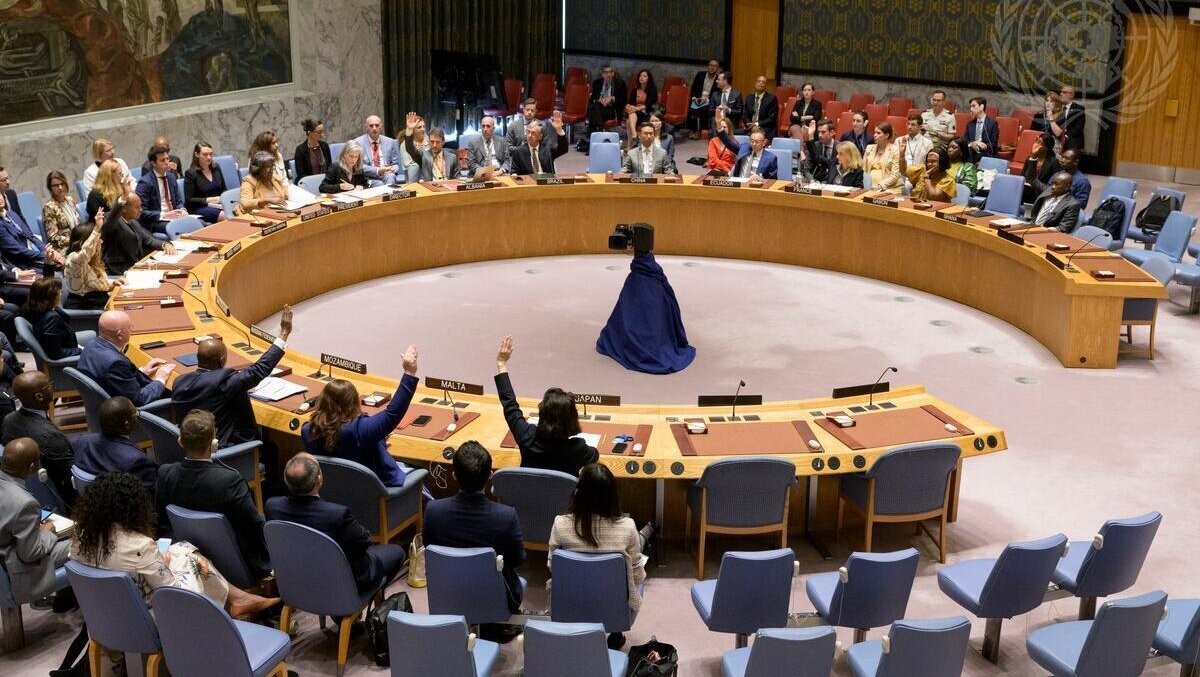The United Nations Security Council (UNSC) adopted resolution 2650 on Thursday, August 31, extending the mandate of its Interim Force in Lebanon (UNIFIL) for one more year until August 31, 2024, despite some objections raised by Lebanon.
The extension resolution was necessitated as UNIFIL’s current annual mandate was about to expire on Thursday. It was passed with the support of 13 of the 15 UNSC members as Russia and China abstained.
The extension of the mandate evoked some resentment from Lebanon with the Hezbollah saying it will not allow the UNIFIL to operate without local coordination.
The extension includes a provision that allows UNIFIL forces to conduct announced and unannounced patrols in the disputed regions. The provision was first inserted in the resolution mandating the extension last year, on the insistence of the US.
Following the Lebanese objection to the provision, the French draft resolution had removed it. However, the US insisted on its inclusion, forcing amendments in the French draft.
Earlier this week, Hezbollah chief Sayyed Hasan Nasrallah called the provision an attempt by the US to turn UNIFIL into a spying agency for Israel. He called the provision a violation of Lebanon’s sovereignty and claimed that Hezbollah will not allow the UNIFIL forces to patrol unannounced without using force against them.
Lebanese representative at the UNSC Jeanne Mrad questioned the move to extend the UNIFIL mandate without taking into account Lebanon’s sovereignty and its request that the UNIFIL coordinate its movements with the Lebanese government.
Mrad rejected suggestions made by some UNSC members, such as the UK and the UAE, that there is a problem between the UNIFIL and Hezbollah and reminded them that “UNIFIL’s presence in south Lebanon is mainly prompted by an outstanding conflict between Lebanon and Israel.”
Representatives from Russia and China also expressed their support for the Lebanese concerns and said that it would be ideal if the UNIFIL coordinated with the Lebanese government. However, they refrained from using their veto as they believe that the UNIFIL has an important role in Lebanon.
Chinese representative Geng Shuang said that “respect of sovereignty and territorial integrity of the state concerned is a basic prerequisite for peacekeeping operations.”
The UNIFIL was established in 1978 in the wake of Israeli aggression inside southern Lebanon. Its mandate was extended following the 1982 invasion and occupation of Lebanese territories by Israel. In 2000, after the end of the Israeli occupation, UNIFIL’s mandate became to monitor the Blue Line which was created by the UN as an interim border between Israel and Lebanon.
UNIFIL has also been mandated to try and resolve issues related to the settlement of permanent borders between Israel and Lebanon. Currently, the land border between two countries is the temporary Blue Line created by the UN in 2000.
Israel has been consistently violating the border, leading to a response from the Lebanese army and resistance groups such as Hezbollah. One such Israeli aggression led to a full-fledged war between Hezbollah and Israel in 2006. Clashes near the border have escalated in the recent past.





